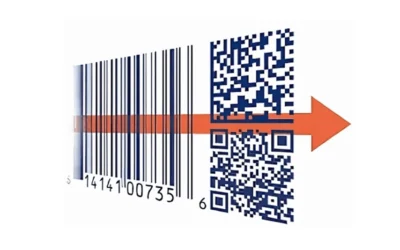The primary goal of every medical facility is to keep patients safe while administering appropriate treatments and remedies for their conditions and illnesses.
With so much at stake, it’s becomes all the more necessary that hospital asset management processes needs to be efficient. When it come to implementing healthcare asset management program, the benefits are not limited to just time and money. In most cases, hospitals, doctors and medical staff do an extraordinary job of ensuring patients are well taken care of.
However, some studies now suggest that medical errors are prevalent enough to be the third leading cause of death in the U.S. Medical personnel are human and errors can happen, especially in the realm of organization and knowing exactly where vital medical devices, lab samples and medications are.
These types of errors in Healthcare asset management can result in operational slowdowns and serious medical consequences for the patients involved. Not to mention, asset management using Excel, paper records or dated database systems leave plenty of room for error.
Cost of Poor Healthcare Asset Management
#1 – Administering the wrong medication, running out of vital drugs, and medication theft
Hospitals that fail to keep track of drugs appropriately can end up making all kinds of disastrous mistakes. Poor drug tracking can lead to mix-ups in medication, which in turn can lead to allergic reactions or dangerous drug interactions. Also, failing to keep track of drugs can mean that drug inventories suddenly run out, resulting in a life-saving medication being unavailable at the moment it’s needed most. In addition, it is not unheard of for medical staff, doctors and nurses to steal medications that they can resell on the black market, or take for their own recreation.
When it comes to Drug packing, verification and tracking, Trust Portal Track Healthcare Software from MSM.
#2 – Losing lab samples
When a patient is sick and nurses or doctors take a sample – be it a blood, spinal fluid, urine, fecal or some other kind of sample – it is extremely important that the sample is not lost while being analyzed by a hospital laboratory. Especially following a spinal tap procedure to extract spinal fluids, which is an extremely painful and dangerous process for the patient, doctors cannot afford to lose a sample. Lost samples can result in delays in diagnosis, which could cause a patient’s condition to worsen unnecessarily. Furthermore, samples getting confused with one another can end in incorrect diagnoses and the wrong treatments being administered, which delays the patient’s healing process and possibly results in unnecessary and catastrophic infection or injury.
#3 – Losing medical devices and medical device theft
The average medical facility houses numerous pieces of extremely expensive equipment, which are vital to ensure patients receive the highest quality care. When these machines and devices are lost, patients cannot be effectively treated in a timely manner. Also, this highly expensive machinery is the perfect target for thieves. Hospitals that do not have strict asset management systems in place to keep track of their medical devices suffer huge financial losses due to the need to replace this machinery.
#4 – Higher operational costs
When hospitals and medical facilities fail in tracking assets, their operational costs go up unnecessarily, which could result in the medical facility cutting corners in other areas to make ends meet. All this disorganization also results in lower patient safety. Medical facilities should ensure they’re not wasting money on preventable asset loss in order to focus their budget on providing the high level of care their patients both desperately need and have a right to receive.
RFID Technology in Healthcare Keeps Hospitals Organized Through Accurate Asset Management
One way medical facilities are preventing errors, saving lives and increasing their efficiency from a cost and money-saving perspective is by reducing the possibility of human error using asset management technology that helps them stay organized. This technology most often involves an RFID (radio frequency identification) system composed of readers and tagged assets. PortalTrack software from MSM Solutions is one of the best RFID inventory tracking software systems available for medical facilities, and it helps prevent all of the issues discussed above.
PortalTrack makes it easy to track medications, lab samples, pieces of medical equipment and more. Implementing the PortalTrack inventory management system allows medical facilities to gain unprecedented visibility into their medical inventories and device locations, and all data is stored in the cloud for easy, any-time access. Automated chain of custody, real-time sample management and much more keep staff accountable and allow hospitals to operate in a much more cost-efficient environment, allowing them to ultimately focus on patient safety.



